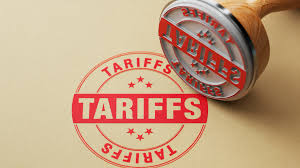In a significant move toward addressing Nigeria’s pressing food security challenges, the federal government has intensified its collaboration with the Japan International Cooperation Agency (JICA) to fast-track the implementation of a ¥15 billion (approximately $110 million) emergency loan facility.
This initiative, aimed at fortifying the nation’s agricultural sector, comes at a critical juncture as Nigeria grapples with global supply chain disruptions, soaring inflation, and the onset of the 2025 rainy season.
The announcement followed a high-level strategic meeting in Abuja on Wednesday involving the Honourable Minister of Finance and Coordinating Minister of the Economy, Mr. Wale Edun; the Honourable Minister of Agriculture and Food Security, Senator Abubakar Kyari; and senior JICA officials.

According to a statement released by the Federal Ministry of Finance and Coordinating Ministry of the Economy, the discussions centered on advancing the Food Security Emergency Loan Support Programme, a cornerstone of Nigeria’s broader strategy to enhance agricultural productivity and economic stability.
A Timely Intervention for Nigeria’s Agricultural Sector
The ¥15 billion loan facility is designed to strengthen Nigeria’s food production systems and build resilience against ongoing global challenges. The agricultural sector, a lifeline for millions of Nigerians, has been under severe strain due to rising input costs, disrupted supply chains, and climate-related uncertainties.
With the 2025 rainy season already underway, the urgency of deploying these funds to support farmers and rural communities was a focal point of the discussions.
The honorable ministers emphasized the need for swift, coordinated action to ensure that the programme delivers maximum impact for farmers and rural communities, the ministry’s statement noted.
The funds are expected to support critical interventions, including the provision of improved seeds, fertilizers, and modern farming equipment, as well as capacity-building initiatives to enhance productivity and sustainability.
Strategic Alignment and Implementation Challenges
The meeting underscored the shared commitment between Nigeria and JICA to address food insecurity, a persistent challenge that affects millions of households across the country.
However, JICA officials requested formal clarification on proposed adjustments to the programme’s implementation framework, particularly regarding components such as aggregation and financing.
These elements, critical to ensuring the efficient distribution and economic viability of agricultural outputs, will be reviewed to align with the original terms of the loan agreement.
Despite these clarifications, both parties agreed to proceed immediately with core production activities under the existing framework. This decision reflects the urgency of supporting farmers during the current planting season, ensuring that critical inputs reach rural communities without delay. “JICA welcomed the government’s commitment to delivery and expressed confidence in the partnership’s potential to drive meaningful change,” the ministry stated.
A Broader Vision for Food Security and Economic Stability
The Food Security Emergency Loan Support Programme is a key pillar of Nigeria’s comprehensive strategy to combat food insecurity, which has been exacerbated by global economic pressures and domestic challenges.
By leveraging international partnerships like JICA, the federal government aims to enhance agricultural productivity, create jobs, and stabilize food prices, which have been a significant driver of inflation in recent years.
The program also aligns with Nigeria’s long-term economic goals, including diversifying the economy away from oil dependency and fostering sustainable development.
Investments in agriculture are seen as a pathway to empower rural communities, reduce poverty, and ensure food self-sufficiency in the face of global uncertainties.
WHAT YOU SHOULD KNOW
Nigeria has deepened its partnership with JICA to implement a ¥15 billion ($110 million) emergency loan facility to strengthen food security, focusing on enhancing agricultural productivity and resilience amid global supply chain challenges.
As Nigeria and JICA move forward with the implementation of the ¥15 billion loan facility, the focus will remain on ensuring transparency, efficiency, and accountability in the deployment of funds.












